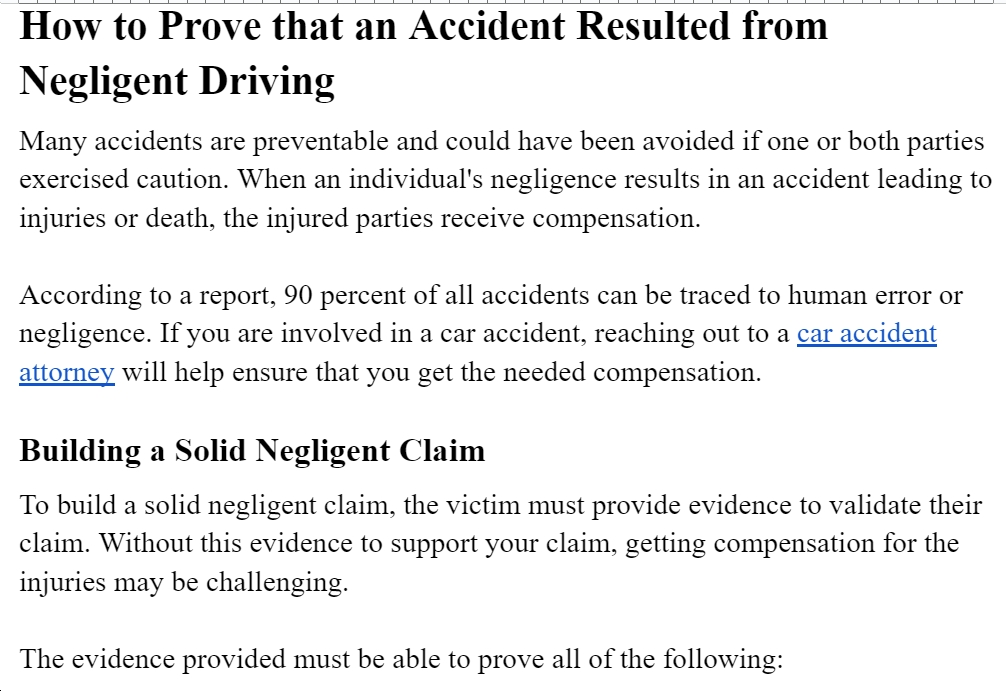Are you tired of unwanted pests invading your home? Don’t worry, you’re not alone! In this article, we’ll share practical and safe DIY pest control tips and tricks to help you effectively keep these uninvited guests at bay. Being proactive and implementing preventative measures is key to maintaining a pest-free environment, and the best part is, that you can achieve that without breaking the bank.
Firstly, it’s essential to identify the types of pests that are troubling your home. This step allows you to tailor your approach and use specific methods designed for each pest. By getting to know your enemy better, you can significantly enhance your efforts and make it less likely for them to return. Remember, different pests require different strategies!
After identifying the unwelcome visitors, it’s crucial to eliminate their entry points, as this is a vital component of DIY pest control. Keeping your home clean and well-ventilated, and using safe and natural solutions like essential oils and vinegar, are just some of the easy techniques you can implement to keep pests away. Always ensure safety is a priority, and soon enough, you’ll enjoy a happier, pest-free home.
Understanding Pest Behaviour and the Environment
Identifying Common Household Pests
Each household may experience various types of pests, and understanding their behaviors is crucial for effective pest control. Some common pests include rodents, ants, cockroaches, spiders, and termites. Familiarising yourself with their appearance, habits, and preferred environments can help you target their weaknesses and address the infestation more efficiently. It’s essential to know about their life cycle, feeding preferences, and favored hiding spots. This way, you can devise an effective pest control strategy tailored to their specific behaviors.
Typical Entry Points for Pests
Pests often enter your home through small cracks, windows, doors, and pipes. It is important to pay close attention to these areas and perform regular inspections to ensure your home remains well-protected against unwanted intruders. Properly sealing gaps and cracks around your home can discourage pests from entering. Weatherstripping and installing door sweeps on your doors can also help prevent pests from slipping through these potential entry points. Furthermore, repairing any damaged screens or vents can keep pests at bay. Regular maintenance and visual inspections of walls, floors, and windows can identify any breaches in your home’s exterior, providing opportunities for proactive pest control.
Role of Cleanliness and Preventative Measures
Maintaining a clean home is paramount in preventing pest infestations. A clutter-free environment will make it more difficult for pests to find shelter and establish a foothold. Regularly vacuuming, cleaning, and wiping down surfaces can help eliminate potential food sources and reduce the likelihood of a pest problem developing.
It is crucial to regularly empty rubbish bins, clean up food spills, and properly store food items. Pests are often attracted to the smell and easy availability of food, so proper food storage and prompt cleaning can help in reducing this attraction. Additionally, regularly checking and cleaning areas prone to moisture accumulation, such as attics, basements, and bathrooms, can help minimize the potential for infestations as pests are commonly drawn to damp environments.
By understanding pest behavior, monitoring entry points, and maintaining a clean home, you can effectively control and prevent infestations in your home. Combining these strategies with proper preventive measures will help ensure that your living space remains pest-free and comfortable.
DIY Pest Control Strategies
Are you tired of those unwanted pests invading your home? Don’t worry! This section is dedicated to a variety of DIY pest control strategies for you to try. You’ll find out how to create barriers and seals to keep those creepy crawlies away. So let’s dive in!
Creating Barriers and Seals
The key to successful pest control is focusing on prevention and eliminating their entry points. One effective way is to create barriers and seals around your home. Here are a few simple tips to get started:
- Caulk and Seal: Use caulk or weather stripping to seal any openings around doors, windows, pipes, vents, and electrical wires. The tighter the seal, the better your chances of stopping those pesky pests.
- Door Sweeps: Install door sweeps on exterior doors to prevent insects and rodents from crawling under them.
- Foundation & Screens: Regularly inspect and repair any cracks or gaps in your home’s foundation. Additionally, install screens on windows, doors, and vents to block access for flying and crawling pests.
Next, let’s explore some natural DIY solutions to repel unwanted visitors:
- Neem: Neem oil is a natural insecticide, making it an eco-friendly alternative to chemical pesticides. Mix a few drops of neem oil with water and spray it on the affected areas.
- Peppermint Oil: Many pests, including ants and spiders, detest the scent of peppermint oil. Dilute it with water and spray it around your home, focusing on potential entry points and nesting locations.
- Vinegar: If you don’t have essential oils at hand, vinegar may do the trick for some pests. Mix equal parts of white vinegar and water in a spray bottle, and apply it on surfaces where you’ve noticed pest activity.
- Traps & Baits: For safe and effective control, try using non-toxic traps and baits specifically designed for your target pests. Sticky traps and live traps are great options and remember to check them regularly.
By adopting these preventative measures and using natural repellents, you can protect your home from unwanted pests. Just remember to be patient and give these methods some time to show their results. Happy pest-proofing!
Natural Repellents and Solutions
One key tip to keeping pests at bay is by sealing any gaps or cracks in your walls, windows, doors, and vents that could allow them to enter your home. This will also help improve your home’s energy efficiency, saving you money on heating and cooling bills.
To prevent pests from being attracted to your indoor spaces, make sure to keep your home clean and dry, especially in the kitchen and bathroom where food and moisture can be particularly appealing to insects and rodents. Promptly clean up any spills, avoid leaving food out, and regularly empty your bins.
When it comes to natural repellents, there are plenty of options you can use to deter pests from your home. Some effective ingredients include:
- Neem oil: A natural insecticide derived from the neem tree, useful for deterring unwanted insects like aphids and mites.
- Peppermint oil: Known for its strong scent, it can be used as a deterrent for ants, spiders, and other insects.
- Garlic and onion spray: this home remedy can help keep spiders at bay.
- Boric acid: Effective against cockroaches, ants, and other insects when placed in target areas like their nests.
Outside your home, consider providing alternative food sources, such as bird feeders, that are located at a safe distance from your garden or plants. This approach can help distract pests from your crops while still supporting local wildlife.
In your garden, you can protect your plants from pests with the use of physical barriers, such as wire cloches, netting, or fencing. These methods can be particularly effective against larger pests like squirrels and birds.
If you enjoy spending time outdoors, you can keep mosquitoes at bay by using fresh herbs like rosemary or sage on your fire pit or grill. The pleasant aroma will not only create a relaxing atmosphere but also deter these pesky insects from your gathering.
By using a combination of these natural repellents and solutions, you can maintain a safer, healthier, and more pleasant living environment without relying on harsh chemicals.
Chemical-Free Options to Control Pests
Using Food-Grade Ingredients as Pesticides
Did you know that there are effective chemical-free ways to deal with pests in your home? One method is using food-grade ingredients as pesticides. For instance, diatomaceous earth is a natural and non-toxic powder made of crushed fossilized diatoms. Sprinkling the powder near areas where you’ve seen unwanted pests, like ants and spiders, can help keep them at bay. Another common kitchen ingredient that can double as a pesticide is baking soda. By mixing equal parts baking soda and sugar, you can create an effective bait for cockroaches. They’ll be attracted to the sugar and consume the mixture, which will ultimately prove fatal.
- Diatomaceous earth: Natural, non-toxic pest control
- Baking soda: Combine with sugar to create bait for cockroaches
Essential Oils and Non-Toxic Substances
Essential oils are another safe way to deter pests without resorting to chemicals. For example, peppermint essential oil is known to repel various pests, such as mice, rats, roaches, and mosquitoes. To use essential oils effectively, simply mix a few drops with water in a spray bottle, and apply the solution to areas where you’ve noticed pest activity. Additionally, non-toxic substances can also help keep your home pest-free. Cedarwood, for example, naturally repels moths and can be placed in wardrobes or drawers to protect your clothing.
- Peppermint essential oil: Repels mice, rats, roaches, and mosquitoes
- Cedarwood: Protects clothing from moths
Using these chemical-free methods, you can maintain a safe and healthy environment for both your family and your pets. Remember, it’s essential to find the right combination of methods and solutions to effectively tackle your specific pest problem. And don’t forget, your plants can also benefit from these natural pest control measures, helping you foster a thriving garden without resorting to harmful chemicals.
When to Consult a Professional
While DIY pest control can be an effective way to tackle minor pest issues, there are instances when it’s necessary to call in a professional. In this section, we’ll discuss the signs of major infestations and discuss the costs and benefits of seeking professional help.
Recognising Signs of Major Infestations
There are several signs of a major infestation that may warrant contacting a professional exterminator:
- Extensive property damage: Termites, for example, can cause immense harm to the structure of your home. If you notice significant wood damage or hollowed-out sounds, it might be time to call a professional.
- Persisting problems: Have you tried several DIY pest control methods without success? This could indicate a larger issue, such as a hidden nest or colony.
- Increased health risks: Certain pests can pose significant risks to your family’s health. Professionals have the appropriate equipment and training to deal with these situations safely.
Weighing the Costs and Benefits of Professional Help
When deciding whether to handle a pest problem yourself or consult a professional, consider the following factors:
- Costs: While DIY pest control may save money initially, the costs can add up if the problem remains unsolved. A professional pest control company can often provide a long-term solution.
- Efficiency: Professionals have access to more effective treatments and techniques, which can eliminate the problem quickly and reduce the likelihood of recurrence.
- Safety: Exterminators have the proper training and equipment to handle dangerous chemicals and situations, ensuring the safety of your family and pets.
- Peace of mind: Knowing your home is truly pest-free can lead to a better quality of life. Trusting a professional exterminator means you can have confidence that your pest problem is resolved.
In conclusion, knowing when to consult a professional pest control service can save time, effort, and money while also ensuring your family’s safety and peace of mind. Don’t hesitate to seek professional help when necessary, especially for major infestations or persistent issues.
Frequently Asked Questions
What are some effective methods for keeping pests out of my home without using harsh chemicals?
There are various ways to prevent pests without resorting to harsh chemicals. First, make sure your home is clean and free of clutter, as this can attract pests. Focus on areas where food is stored, like the kitchen. Secondly, ensure all openings and cracks are sealed to prevent entry. Sealing small entry points is essential in keeping pests away from your home. Another method is to use natural repellents, such as essential oils, vinegar, or diatomaceous earth.
Can you share some DIY solutions for repelling insects and rodents naturally?
Certainly! A popular DIY pest control solution involves using plant-based remedies. For instance, you could use lavender or eucalyptus essential oils to repel insects. Sprinkle diatomaceous earth around your house to deter crawling bugs. For rodents, consider using natural scents like peppermint oil or place cotton balls soaked in the oil in areas they frequent. Repellent plants, such as mint or basil, can also help keep pests away from your garden.
In what ways can I pest-proof my home to prevent infestation?
To pest-proof your home, it’s vital to eliminate entry points and remove anything that might attract pests. Regularly inspect your home for cracks and gaps, and seal them as necessary. Keep your living space clean and tidy, as pests often seek shelter in chaotic environments. Store food securely, and dispose of rubbish regularly to deter pests. Additionally, consider checking your home’s ventilation system, as damp environments attract rodents and insects.
What are the top homemade remedies for controlling common household pests?
Homemade remedies can effectively control pests without resorting to chemicals. Some suggestions include:
- Using a mixture of dish soap and water to eliminate spiders or ants
- Creating a vinegar spray for repelling fruit flies
- Sprinkling baking soda and sugar to address cockroach infestations
- Applying a blend of equal parts borax and sugar to eradicate ants
These remedies may not work every time but can offer a more natural alternative for controlling pests.
How often should I carry out pest control measures in my home to keep it pest-free?
Regular maintenance is crucial for keeping your home pest-free. Depending on factors like pest prevalence in your area and the time of year, the required frequency may vary. Generally, it’s a good idea to inspect your home and carry out preventative measures monthly. Some pest control measures, like cleaning and sealing entry points, should be performed seasonally. If you notice an increase in pest activity or signs of infestation, it’s essential to take action immediately.
What should I look for when choosing pest control products to ensure they’re safe and effective?
When selecting pest control products, prioritize options that are non-toxic, environmentally friendly, and safe for children and pets. Look for products containing naturally derived ingredients or plant-based solutions. Always read labels and follow usage instructions carefully to ensure effectiveness and safety. If you’re in doubt, seek advice from a professional exterminator or opt for DIY pest control solutions that utilize non-toxic ingredients and methods.



